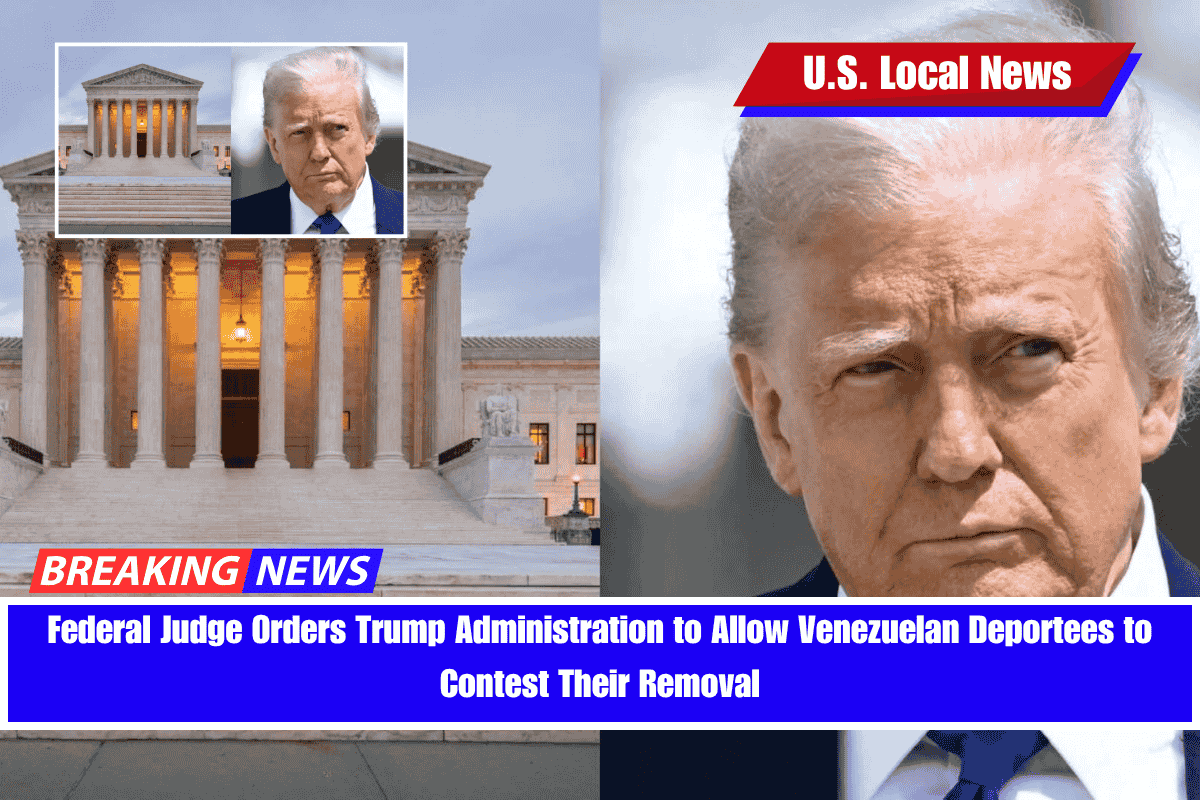A federal judge in Washington, D.C. has ordered the Trump administration to provide more than 100 Venezuelan men the opportunity to contest their deportation to El Salvador. The ruling comes after months of legal battles over the fate of these deportees, who were removed in March 2025 under the 1798 Alien Enemies Act, a law that dates back to the 18th century.
U.S. District Judge James Boasberg determined that the deportees had been “plainly deprived” of their due process rights, which violated constitutional protections.
These men had been sent to El Salvador’s Terrorism Confinement Center (CECOT) without being given a chance to contest their removal. Boasberg ruled that the Trump administration’s actions had “improperly withheld” due process, and ordered that these men must be given the opportunity to challenge their deportations.
Background of the Deportations
The Trump administration had used the Alien Enemies Act to justify deporting 137 Venezuelan nationals, claiming they were members of the Tren de Aragua, a violent prison gang. The administration argued that these deportations were necessary for national security reasons.
However, numerous legal challenges have emerged, with some courts rejecting the idea that this 18th-century law could be applied to deport Venezuelan migrants without sufficient evidence.
The March 2025 deportations took place after the Trump administration invoked the Alien Enemies Act to expel Venezuelan nationals accused of gang affiliation, particularly members of Tren de Aragua.
According to U.S. officials, these men were considered “terrorists” and part of an enemy group during wartime. However, a CBS News and 60 Minutes investigation found that many of the deported individuals had no criminal convictions or charges and were wrongfully classified as gang members.
The Judge’s Ruling
In his ruling, Judge Boasberg emphasized the right to due process, asserting that the deportees should have been notified of their deportation and been allowed to challenge their removal under habeas corpus.
Habeas corpus is a constitutional right that allows individuals to challenge unlawful detention. Boasberg ordered the Justice Department to provide the 137 Venezuelan deportees with an opportunity to seek habeas relief, which would allow them to contest their deportation.
The judge also criticized the Trump administration’s handling of the case, pointing out that evidence had emerged indicating that many of the deported men had no connections to gangs.
He stated, “significant evidence has come to light indicating that many of those currently entombed in CECOT have no connection to the gang and thus languish in a foreign prison on flimsy, even frivolous, accusations.”
Ongoing Legal Challenges and Political Backlash
The ruling follows a series of legal challenges by the American Civil Liberties Union (ACLU), which has advocated on behalf of the deported Venezuelan migrants. The ACLU’s legal team has been vocal about what it considers constitutional violations during the deportation process.
Lee Gelernt, an ACLU attorney, said, “The court correctly held that the government cannot simply wash its hands of all responsibility for these constitutional violations and leave these men to linger in a brutal prison, perhaps for the rest of their lives.”
The Trump administration has maintained that the deportations were necessary due to national security concerns and that the men involved were members of violent gangs.
However, the legal fight continues, and the Trump administration faces further scrutiny over its use of the Alien Enemies Act to remove immigrants without providing them adequate due process.
Future of the Deportations
Judge Boasberg’s ruling has allowed the deportees in CECOT to potentially challenge their removals, but the Trump administration has argued that it does not have custody over the migrants because they are technically under the control of the Salvadoran government. This has complicated efforts to resolve the legal disputes.
The administration’s stance on the issue is further complicated by an April 2025 ruling from the U.S. Supreme Court, which allowed the deportations to resume but mandated that those affected be entitled to due process before their deportation. The Trump administration has yet to address how it will comply with the court’s directives.











Leave a Reply